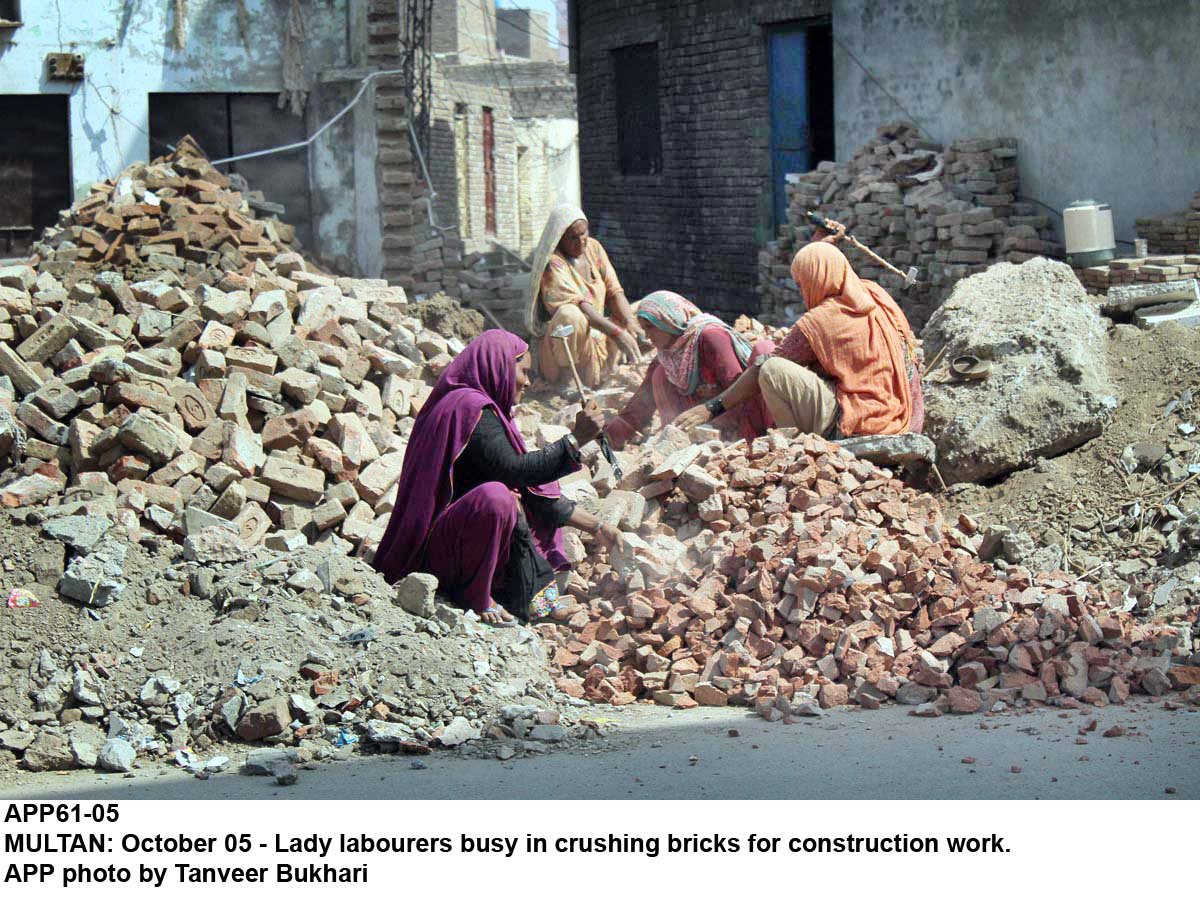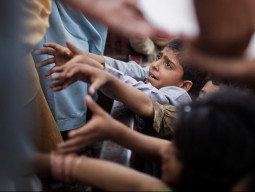
In Pakistan, many workers, especially the females employed in the informal economy, are susceptible to such privations.
The informal-sector workers make a significant contribution to Pakistan’s gross domestic product, but informal work remains outside of regulations and protection and therefore it is largely invisible in official statistics.
These workers are living in abject poverty owing to the absence of a coordinated package of social assistance, social insurance, labour market and care programme which could prevent them from falling further into poverty.
Majority of the women work as domestic workers and earn way less than formal workers and in many instances are denied labour rights such as maternity leave, health insurance and unemployment insurance.
The informal sector has significant gender differences. A study was commissioned in 2013 by the International Labour Organization (ILO) and the Women in Informal Economy Globalising and Organising (WIEGO) which reviewed the status of informal-sector workers in 41 countries.
The study depicted that in 30 countries, the share of women in informal non-agricultural employment was higher than that of men. The gap was huge in countries including Zambia (80% of women work in informal employment compared to 63% of men), Mali (89% women compared to 74% men), as opposed to India (85% women and 83% men) and Indonesia (73% women and 72% men) where the gap was relatively less.
According to academic Martha Chen, women are concentrated in more precarious forms of employment with low and unstable wages and high risks of poverty. The informal sector represents a poverty trap for women and this is due to the low level of education, skills and resources that women possess.
Across the world it has been observed that women’s statutory coverage for contributory schemes is lower than men. The overall unemployment insurance coverage is also abysmally low. Besides, the coverage of employment injury also fails to provide protection to the workers employed in the informal sector.
According to the ILO statistics of 2014, at global level only 33.4% of the total labour force and only 31.7% of the female labour force is mandatorily covered by the law through social insurance.
Insurance system
The existing status of social insurance system in Pakistan appears to neglect a number of females, especially the ones working as domestic workers, street vendors or home-based workers.
The need of the hour is to develop a comprehensive social security system which includes schemes covering sickness, maternity, old age, invalidity, survivors, family allowances, employment injury and unemployment. Moreover, it should ensure that women are covered on an equal basis to the men.
However, informal workers, which are heavily composed of women, are not recognised as workers at all. Working in informal enterprises or being self-employed, by definition, means that workers are not provided contracts. This leads to women in the informal sector having little or no bargaining power with employers or governments.
The informal-sector workers also face an array of health risks owing to the nature of their work. Most of them have to work in environments with inadequate shelter, water, sanitation or electricity. These factors also tend to heighten exposure to risks.
The ILO categorically states that maternity protection should be a key part of employment-based social insurance but in reality its provision is quite low.
The UN Women in 2015 has observed that only 28% of the member states comply with the ILO Maternity Protection Convention providing for at least 14 weeks of leave at a rate of at least two-thirds of previous earning. These could be paid by social insurance or public funds and not solely by the employers.
Suggestions
Pakistan should also consider changing eligibility criteria of social insurance programmes to include informal workers. In addition to that, top-up system and credits for women contributing to pensions should be introduced.
This is a key strategy of pension reforms in some countries. Pakistan could also introduce care credits which compensate individuals, especially women, for contribution lost as a result of the time spent out of the labour force caring for dependents.
Women’s access to and benefits from social security can be improved through the implementation of a specific design. It should entail social insurance schemes supported by gender poverty and vulnerability analysis to assess the types of risks women and men face and how gender inequality might affect these risks.
The involvement of informal workers (including women) and their representatives in designing the scheme is crucial.
The government of India has introduced smart cards for the unorganised sector workers covering their social protection needs. The scheme is to be launched in phases and the initial target was to issue 100 million smart cards called Unorganised Workers’ Identification Number.
Pakistan must follow the example as it could ensure provision of social security to the informal workers.
The writer is a consultant in the development sector and holds a law degree from the University of London
Published in The Express Tribune, October 17th, 2016.
Like Business on Facebook, follow @TribuneBiz on Twitter to stay informed and join in the conversation.



















1714024018-0/ModiLara-(1)1714024018-0-270x192.webp)























COMMENTS
Comments are moderated and generally will be posted if they are on-topic and not abusive.
For more information, please see our Comments FAQ